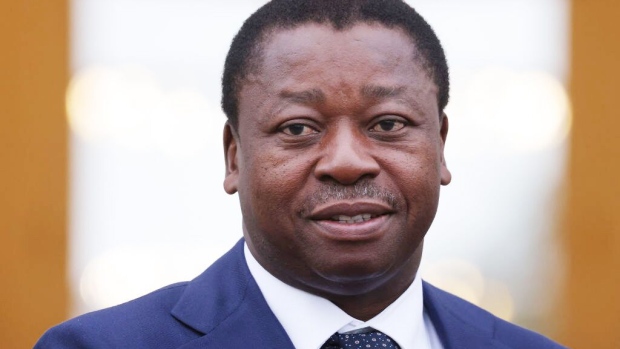Apr 20, 2024
Togo Votes to Weaken Future Presidents in Move That Could Extend Incumbent’s Rule
, Bloomberg News

(Bloomberg) -- Lawmakers in Togo adopted a new constitution that dilutes the powers available to future heads of state but could extend President Faure Gnassingbe’s rule.
The nation’s president will no longer be elected by universal suffrage but by members of parliament, according to the new code.
The law was approved by parliament in March but was subject to further amendments that have now been completed. It doesn’t take into account the almost two decades Gnassingbe has already been in power, sparking concern that he’s seeking to extend his family’s more than 50-year long rule of the West African nation of about 9 million people.
Under the new system, Togo’s parliament will chose a council president who’ll lead the government. Some of the president’s powers will be transferred to the council president, and presidential term limits will be introduced for a maximum of two four-year stints, versus the current five-year terms with no limits.
That means Gnassingbe, 57, could stay in power until 2033 if he’s re-elected when his current term ends in 2025, or he could vie for the role as council president. His party currently holds a majority in parliament.
Togo’s parliamentary elections, first scheduled for this weekend but pushed back after violent protests sparked by the new code, are now set for April 29.
Gnassingbe has two weeks to sign the new code into law.
©2024 Bloomberg L.P.